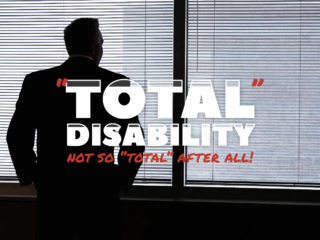Full Decision
The defendant brought a motion pursuant to Rule 26.02(c) of the Rules of Civil Procedure for an order granting the defendants leave to amend their statements of defence to plead the legal doctrine of spoliation. Justice Turnbull adjourned the motion so that the defendant could return with a proper evidentiary basis to support the motion.
Facts
The action arose out of a motor vehicle collision that occurred on May 7, 2014, in which the plaintiff was catastrophically injured. He received attendant care services from Bayshore HomeCare (“Bayshore”) from November 2015 to May 2016, when his insurer, Aviva, declined to pay ongoing attendant care benefits.
The plaintiff gave an undertaking at the Examination for Discovery to provide the clinical records from Bayshore during the period in which the plaintiff received attendant care services. The file that Bayshore provided to counsel for the plaintiff contained only information with respect to attendances and billing. The clinical notes and records were not in the file.
The defendant brought a motion pursuant to Rule 30.10 (a third-party production order) and obtained an order compelling Bayshore to produce the clinical file. In response, Bayshore advised counsel for the defendant that the clinical file was stored at the plaintiff’s residence and that its employees were unable to retrieve the file when services ended. The plaintiff could not find any medical file stored at his residence.
Based on the letter from Bayshore, the defendant wished to plead that the plaintiff lost or destroyed medical records which were of central importance to the action for personal injuries.
Held
The motion to amend was adjourned without prejudice to the defendant to bring the motion back based on proper evidence. Justice Turnbull suggested that proper evidence would include a sworn affidavit of a Bayshore employee. Based on the information available and the lack of at least a basic evidentiary basis, the prejudice to the plaintiff exceeded any prejudice to the defendant that the amendment should not be granted.
Reasons
The threshold is low to amend a pleading. Rule 26.01 uses mandatory language to permit an amendment at any stage of the proceeding on such terms as are just unless prejudice would result that could not be compensated for by costs or an adjournment.
The plaintiff opposed the motion to amend on the basis that the defendant’s supporting affidavit relied on double hearsay. It relied on the unsworn letter of a Bayshore manager, not the caseworker(s) who had control of the Bayshore file while providing services to the plaintiff.
Furthermore, the plaintiff filed a sworn affidavit in which he denied that he was ever provided with the clinical file from Bayshore, that Bayshore ever left the file at his residence, nor did they advise him that they were going to do so, and that he was never advised by Bayshore that it was leaving its only copies of his file at his residence. The plaintiff had formal training in nursing and pharmacology. He would have recognized a medical file if it were left with him, and that he would have appreciated the importance of preserving that medical file, particularly in the context of personal injury litigation.
Additionally, Bayshore’s public policies indicated that they retain all discontinued client records for a minimum of ten years or longer if required by provincial legislation. The records, whether stored at Bayshore’s offices or off-site, are stored in a manner that ensures ongoing security.
The essence of the amendment sought was that the plaintiff did something intentionally or negligently to dispose of a file which he ought to have known was relevant. The inference the defendant will want the trial court to draw is that the plaintiff hid evidence that was not helpful to his case. Justice Turnbull noted that such an unfounded assertion based on double hearsay can possibly cause irreparable damages to the plaintiff’s case. It will cause the plaintiff time and costs to attempt to investigate the matter and possibly lead evidence on an insure which is arguably collateral to the principal issues in the lawsuit.
Justice Turnbull noted that there were several questions the defendant ought to have posed to Bayshore in support of the motion:
a) Who was the caseworker(s) who left the file at the plaintiff’s residence?
b) Are they still employed by Bayshore? If not, are their whereabouts known?
c) Has anyone from Bayshore spoken directly to the caseworker who allegedly left the clinical file at the plaintiff’s residence. If so, what will be the evidence of that caseworker?
d) What efforts were made by who, when and how often to obtain the file from the plaintiff’s residence?
e) What documentation is in the file supporting Bayshore’s claims it tried to obtain its file from the plaintiff?
f) Was a contemporaneous note or memo put in the Bayshore file at the time the plaintiff allegedly refused to return the file? What was the source of that information? Who wrote it? When was it written? Is the author still employed at Bayshore or available to swear an affidavit?
g) What was the policy of Bayshore about keeping a copy of a client’s file either in paper or digital form? Was that policy followed in this case? If not, why?
To grant this amendment would allow the defendant at trial to suggest dishonest conduct or bring into question the credibility of the plaintiff with no other evidence than confronting the plaintiff with the letter from Bayshore. The plaintiff, if the amendment is granted, would then be required to spend time and money to attempt to obtain the relevant information from Bayshore when that ought to have been done by the defendant in support of this motion.
Justice Turnbull granted the defendant leave to bring the motion back for argument provided proper affidavit evidence is led and the plaintiff is given the opportunity to cross-examine on the affidavit. If the motion was not made returnable within 90 days, it shall be deemed to be dismissed.
This motion re-iterates the importance of ensuring that the moving party has a robust evidentiary basis for bringing a motion, even in circumstances where the threshold for granting the motion is low.












